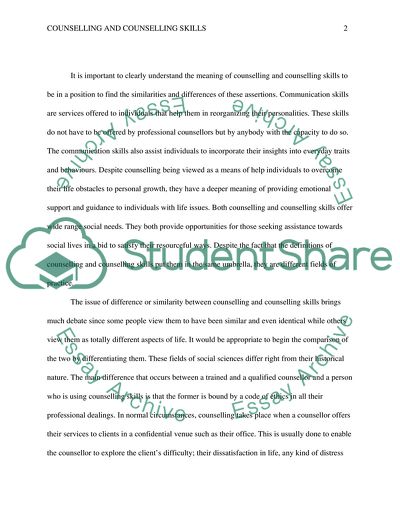Cite this document
(Counselling and Counselling Skills Research Paper, n.d.)
Counselling and Counselling Skills Research Paper. Retrieved from https://studentshare.org/sociology/1874335-a-2500-word-essay-evaluate-and-reflect-on-what-counselling-is-and-explore-theoretically-and-reflectively-the-differences-that-exist-between-counselling-counselling-skills-and-other-forms-of-helping
Counselling and Counselling Skills Research Paper. Retrieved from https://studentshare.org/sociology/1874335-a-2500-word-essay-evaluate-and-reflect-on-what-counselling-is-and-explore-theoretically-and-reflectively-the-differences-that-exist-between-counselling-counselling-skills-and-other-forms-of-helping
(Counselling and Counselling Skills Research Paper)
Counselling and Counselling Skills Research Paper. https://studentshare.org/sociology/1874335-a-2500-word-essay-evaluate-and-reflect-on-what-counselling-is-and-explore-theoretically-and-reflectively-the-differences-that-exist-between-counselling-counselling-skills-and-other-forms-of-helping.
Counselling and Counselling Skills Research Paper. https://studentshare.org/sociology/1874335-a-2500-word-essay-evaluate-and-reflect-on-what-counselling-is-and-explore-theoretically-and-reflectively-the-differences-that-exist-between-counselling-counselling-skills-and-other-forms-of-helping.
“Counselling and Counselling Skills Research Paper”, n.d. https://studentshare.org/sociology/1874335-a-2500-word-essay-evaluate-and-reflect-on-what-counselling-is-and-explore-theoretically-and-reflectively-the-differences-that-exist-between-counselling-counselling-skills-and-other-forms-of-helping.


